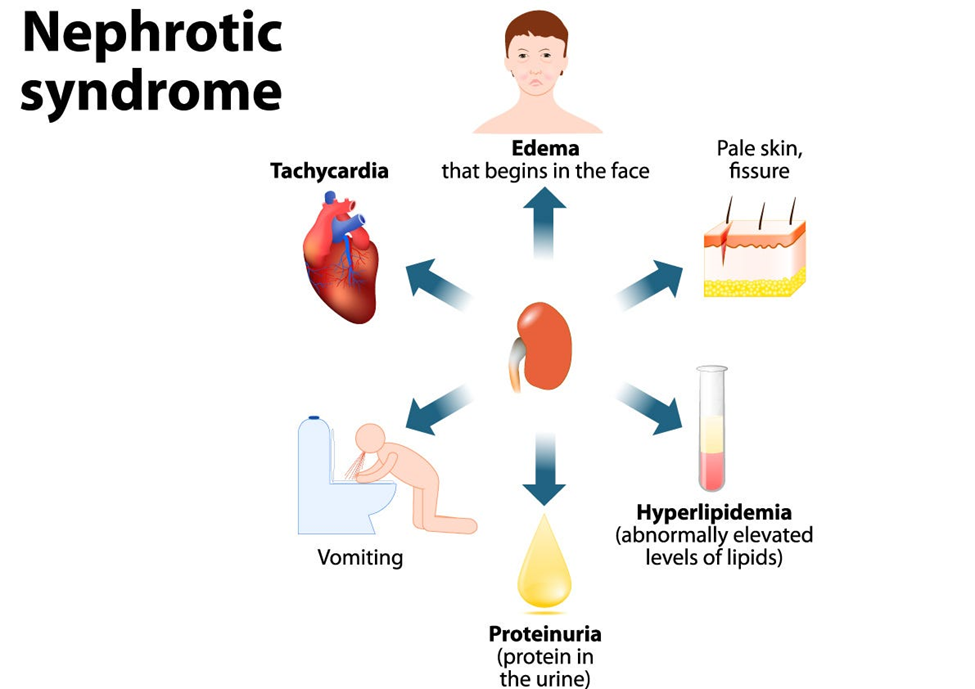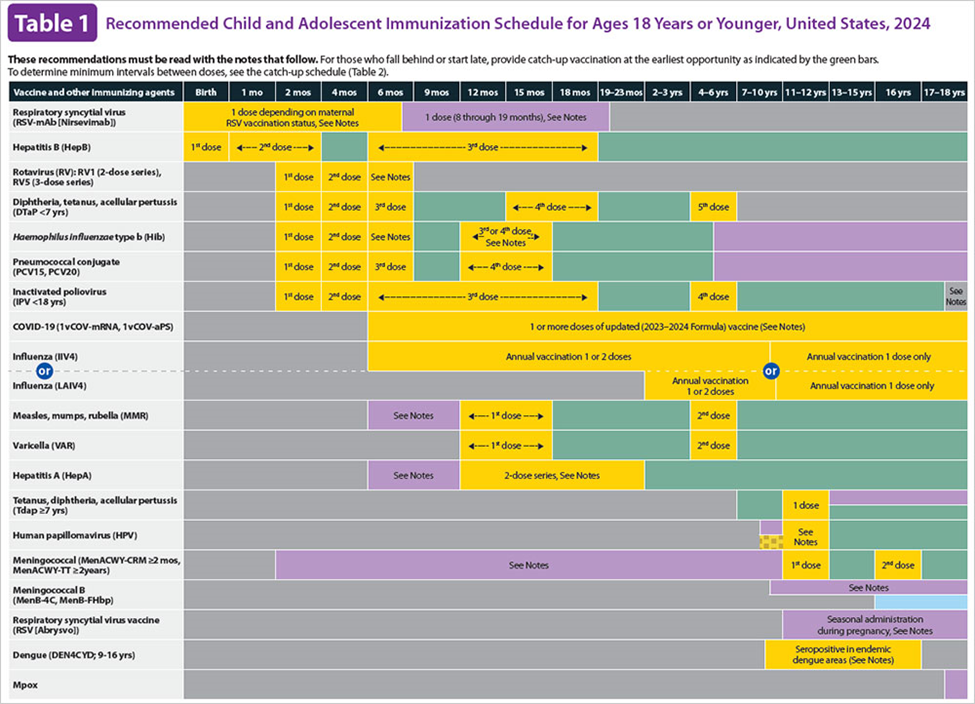A nurse is collecting data from a child who has nephrotic syndrome. Which of the following manifestations should the nurse expect?
Orange-tinged urine
Hypertension
Periorbital edema
Polyuria
The Correct Answer is C
A. Orange-tinged urine
- This manifestation is not typically associated with nephrotic syndrome. Orange-tinged urine may indicate other conditions such as dehydration, liver disease, or the presence of certain medications or foods.
B. Hypertension
- Hypertension is not a common manifestation of nephrotic syndrome. However, it can occur in some cases due to the retention of sodium and water, which can lead to fluid overload and increased blood pressure.
C. Periorbital edema
- This is a classic manifestation of nephrotic syndrome. Periorbital edema, or swelling around the eyes, is often one of the initial signs observed in children with nephrotic syndrome due to the loss of protein in the urine, leading to fluid accumulation in the tissues.
D. Polyuria
- Polyuria, or increased urine output, is not typically associated with nephrotic syndrome. Instead, children with nephrotic syndrome may experience oliguria or normal urine output, depending on the severity of renal involvement and fluid balance.

Nursing Test Bank
Naxlex Comprehensive Predictor Exams
Related Questions
Correct Answer is A
Explanation
A. Reports of exposure to a skin irritant:
This finding is consistent with contact dermatitis, as it typically occurs due to exposure to irritants or allergens. Therefore, it is an expected finding.
B. Elevated temperature:
Elevated temperature is not typically associated with contact dermatitis unless there is a secondary infection. It is not a typical finding in uncomplicated contact dermatitis.
C. Denial of pruritus:
Pruritus, or itching, is a common symptom of contact dermatitis. Clients with contact dermatitis often experience itching or discomfort in the affected area. Therefore, denial of pruritus would be an unexpected finding.
D. Reports of joint discomfort:
Joint discomfort is not typically associated with contact dermatitis. Contact dermatitis primarily affects the skin and does not usually involve the joints. Therefore, reports of joint discomfort would be an unexpected finding.
Correct Answer is B
Explanation
A. Influenza:
The influenza vaccine is typically administered annually starting at 6 months of age. It helps protect against seasonal influenza viruses and is usually recommended during the fall or winter months.
B. Rotavirus:
The rotavirus vaccine is routinely administered to infants starting at 2 months of age, with additional doses given at 4 and 6 months of age. It helps prevent rotavirus infection, which can cause severe diarrhea and vomiting in infants and young children.
C. Measles, mumps, rubella (MMR):
The MMR vaccine is typically administered around 12-15 months of age, with a second dose given at 4-6 years of age. It helps protect against measles, mumps, and rubella, which are contagious viral infections that can cause serious complications.
D. Varicella (VAR):
The varicella vaccine, also known as the chickenpox vaccine, is usually administered around 12-15 months of age, with a second dose given at 4-6 years of age. It helps prevent chickenpox, a highly contagious viral infection characterized by a rash and fever.

Whether you are a student looking to ace your exams or a practicing nurse seeking to enhance your expertise , our nursing education contents will empower you with the confidence and competence to make a difference in the lives of patients and become a respected leader in the healthcare field.
Visit Naxlex, invest in your future and unlock endless possibilities with our unparalleled nursing education contents today
Report Wrong Answer on the Current Question
Do you disagree with the answer? If yes, what is your expected answer? Explain.
Kindly be descriptive with the issue you are facing.
